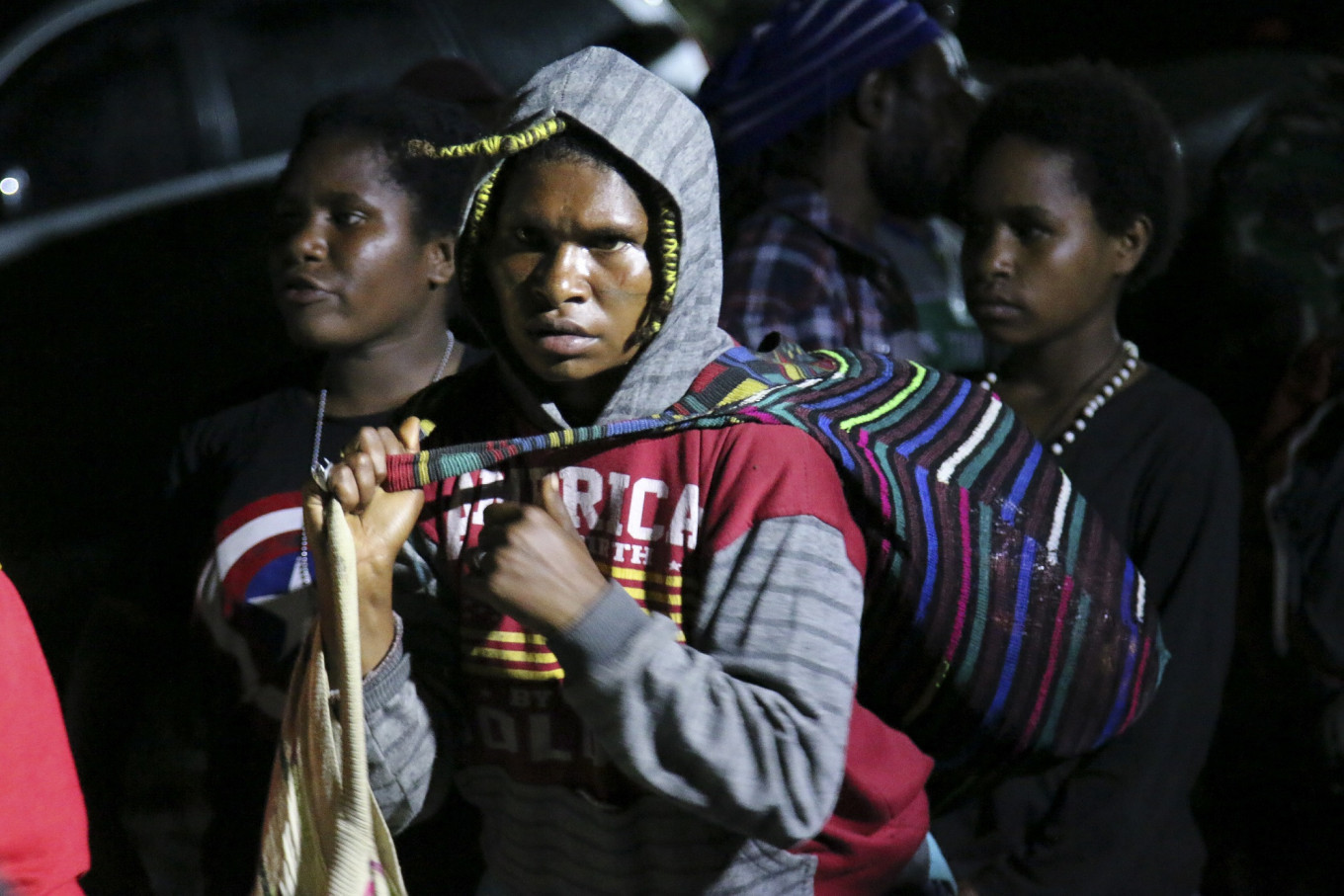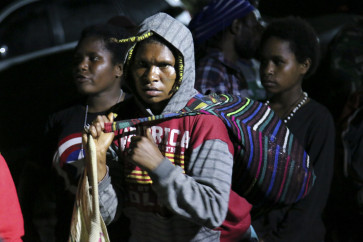Popular Reads
Top Results
Can't find what you're looking for?
View all search resultsPopular Reads
Top Results
Can't find what you're looking for?
View all search resultsDebating culture in the equation of Papua's conflict resolution
Whether the customs of a local culture are considered as part of conflict resolution, they should not supplant justice and law in determining the final resolution.
Change text size
Gift Premium Articles
to Anyone
 People wait to be evacuated by the Indonesian Military (TNI) and the National Police on March 8, 2020 in Tembagapura district, Mimika regency. Thousands of local residents have been displaced from their homes due to armed conflict between security forces and militant separatist groups. (Antara/Sevianto Pakiding)
People wait to be evacuated by the Indonesian Military (TNI) and the National Police on March 8, 2020 in Tembagapura district, Mimika regency. Thousands of local residents have been displaced from their homes due to armed conflict between security forces and militant separatist groups. (Antara/Sevianto Pakiding)
T
he security situation in Papua has been heating up as efforts continue to release Susi Air pilot Philips Mehrtens, captured by the West Papuan Liberation Army (TPNPB) over month one ago. Tensions have become even tighter due to the recent Wamena riots, which stemmed from fake news about an incident of child abduction.
Security forces have come under the spotlight yet again, accused of involvement in the Wamena violence that claimed 10 civilian lives. Amid this worrying state, talks are rising about paying compensation, also known as “head pay”, for those killed and injured in Wamena on Feb. 23.
Payment of compensation for casualties of the bloody Wamena tragedy follows the custom of communities in the Papuan Highlands. However, not all victims agree with this rule. Interestingly this custom, which usually occurs as payment in goods or livestock, only applies to horizontal conflicts, such as tribal wars, and not vertical disputes involving security forces.
This cultural negotiation is quite interesting. So far, culture tends to have no place in policy discourse for resolving the complex problems in Papua. This happens because of the narrative of primitiveness and cultural backwardness that stigmatize indigenous Papuan people (OAP). The inclusion of culture as part of conflict resolution in Papua invites us to contemplate other cultures and their approaches through an “elicitive” approach in which we are engaged as active and nonjudgmental learners.
Contextualizing the resolution of the cultural conflict resulting from the Wamena case has the potential to carry multiple interpretations in termes of meaning and polemic. On the one hand is an interpretation that compensation is seen as a form of “pardon” for the perpetrators of the murders, or as a symbol of peace. One dead victim is valued at Rp 5 billion (US$322,527), one injured victim at Rp 1 billion, and there are also demands for several pigs as payment.
Legally, this form of compensation appears to be valid because the 1945 Constitution recognizes customary values and traditions in Indonesian society as a legitimate source of unwritten laws. This legal aspect is similar to the Constitutional Court’s recognition of preserving the system of noken (traditional woven bag) as an electoral system.
On the other hand, even though there is a legal basis, the practice of paying cash and livestock as “fines” for fatal and injured victims nullifies the intrinsic value of the function of law, namely justice, protection, humanity, legal certainty and respect for human rights (Tabuni, 2023). Under the law, punishment is given to perpetrators of crimes.















